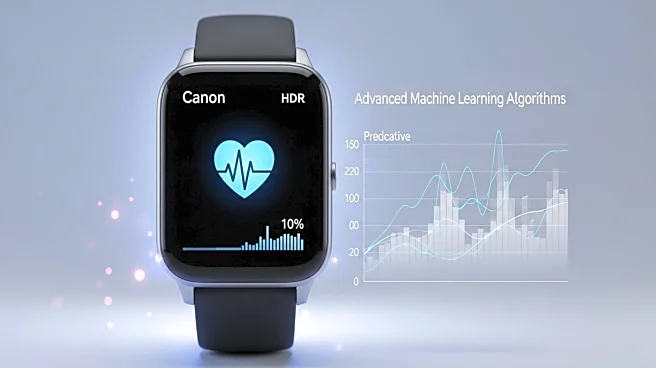What is the story about?
What's Happening?
Recent advancements in machine learning are significantly improving the accuracy of diabetes prediction models. Researchers have employed various algorithms, including Support Vector Machines and Random Forest, to enhance predictive performance. A study utilized a dataset from the National Institute of Diabetes and Digestive and Kidney Diseases, focusing on women of Pima Indian heritage in Arizona. The research involved preprocessing data, feature extraction, and employing machine learning models like XGBoost, optimized by Optuna, to classify patients at high risk of diabetes. The study achieved an F1 score of 78% and an overall accuracy of 83%, underscoring the efficacy of these models in diabetes risk assessment.
Why It's Important?
The integration of machine learning in diabetes prediction is crucial for timely interventions and improved patient outcomes. By accurately identifying high-risk individuals, healthcare providers can implement preventive measures and personalized treatment plans, potentially reducing the incidence of diabetes-related complications. This approach not only enhances clinical decision-making but also optimizes resource allocation in healthcare systems. The use of advanced algorithms allows for the processing of large datasets, uncovering patterns that traditional methods might miss, thereby improving the generalizability and accuracy of diagnostic tools.
What's Next?
The ongoing development of machine learning models for diabetes prediction suggests further improvements in healthcare diagnostics. Future research may focus on refining these models to accommodate evolving patient conditions and integrating them into routine clinical practice. Stakeholders, including healthcare providers and policymakers, may consider investing in technology infrastructure to support these advancements. Additionally, there may be discussions on ethical considerations and data privacy as machine learning becomes more prevalent in healthcare settings.
Beyond the Headlines
The use of machine learning in healthcare raises important ethical and legal questions, particularly concerning data privacy and the potential for algorithmic bias. As these technologies become more integrated into clinical practice, there will be a need for robust guidelines to ensure patient data is protected and that predictive models are fair and unbiased. Furthermore, the cultural implications of targeting specific demographic groups, such as the Pima Indian heritage, must be carefully considered to avoid stigmatization and ensure equitable access to healthcare innovations.
















